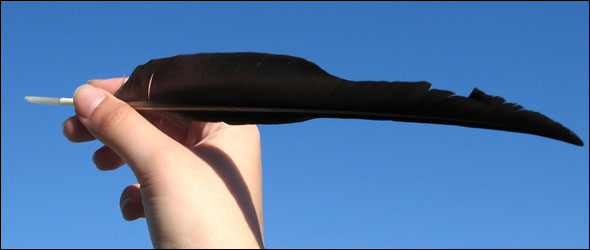Sorry for the lack of writing the past few days! My internet has been down since Friday, but it seems to be fine now.
So today was the first day of my 3rd year of Biomedical Sciences at York. I had been living on campus during my first two years, but decided to save some money and commute this year. I had been commuting home during the summer from York (because of my NSERC research job), but I had yet to experience the morning ride to York, especially during the regular school year.
Wow. Talk about a long ride. It took about 1 hour and 30 minutes to get to York by bus this morning. I find the bus kind of boring, since I don’t have anyone to talk to on my route. And since I get bored pretty easily in general… bad combination.
First class today was BIOL 3010: Advanced Biochemistry. Basically the entire course is about metabolism. Metabolism of beer, metabolism of poisons, metabolism of amino acids, etc. etc., it’s all on the course syllabus. Yay fun… (sarcasm for the gullible) Anyways, the professor was actually a pretty funny, laid back guy. Which is usually good, except for some reason, that always means harder tests. We’ll see I guess…
Second class was GEOG 1000: World Regional Geography. This course is kind of weird… the lectures apparently are going to be full of random stories and geographical history, and will often be biased (their words, not mine). Oh, and there is a map quiz where in a past year, students had to draw the entire map for a region from scratch. Umm yah, interesting…
Third (and last) class for today was PHIL 2060: Social and Political Philosophy. I’m probably not going to look forward to reading the material (because I tried that last year with this kind of philosophical stuff, and well sorry, I learned English in the 20th century, not the 17th…). But I do enjoy the concepts, and the professor seems very interesting and like he understands the stuff (and philosophy in general, which is kinda important). Not looking forward to the two essays, but pretty sure I’ll find the material very interesting.
Pretty happy in general that none of my professors decided to actually teach much today. I had that once for last year, and well, that wasn’t fun… hard to take class seriously on the first day.
Tomorrow I have Processes of Evolution and Molecular Biology I…. super happy to only have two classes on Tuesdays and Thursdays!
Sorry for having no new articles up yet. I have a few in mind though, plus finishing up the Scholarship Essay series. I hoped to have that finished by the end of this week, but writing that piece is taking longer than I thought.
I think I’m going to write an interesting article for tomorrow about the importance of “making sense”. This is a super important and powerful concept, hopefully you find it interesting and useful.
Hope everyone had a good first day of school! =)





